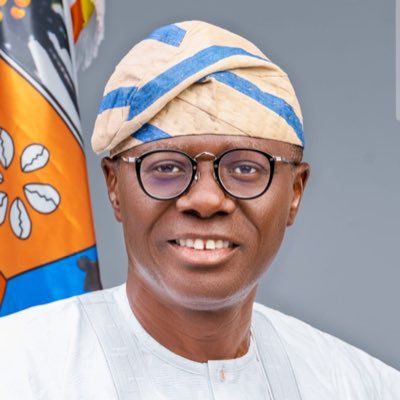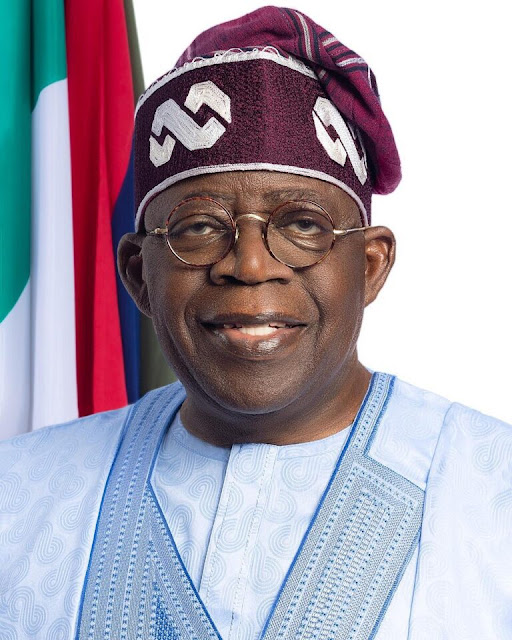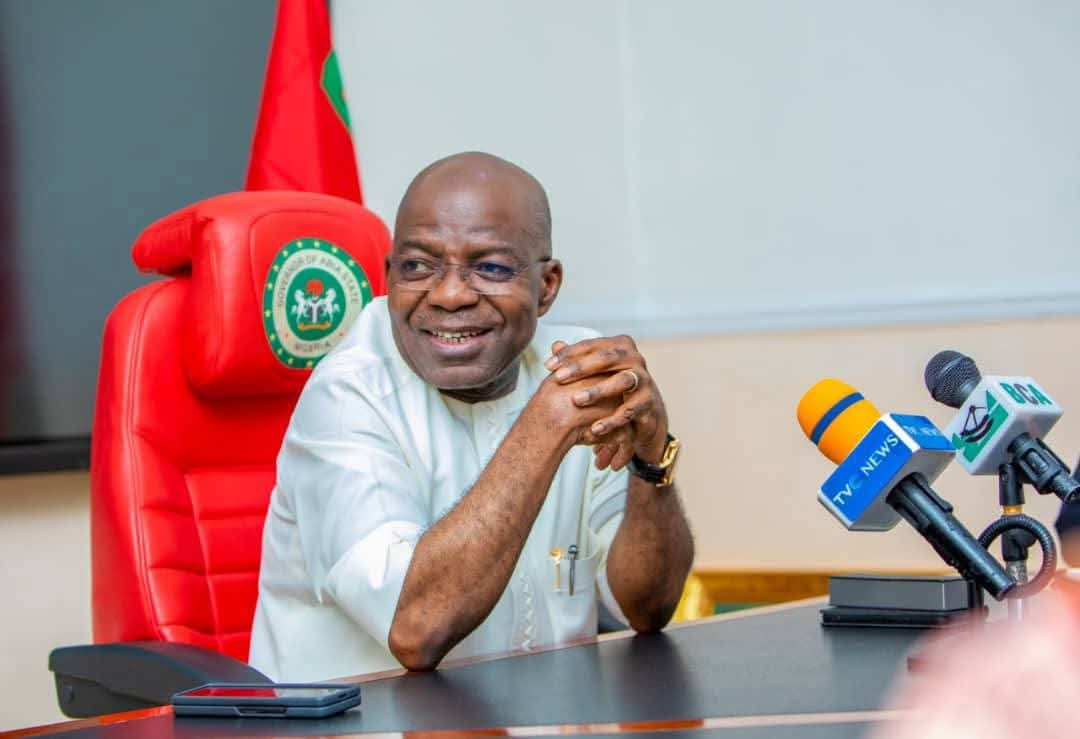The Federal Government of Nigeria has set an ambitious target to increase the digital economy’s contribution to the nation’s Gross Domestic Product (GDP) to 21% by 2027. This goal, announced by the Minister of Communications, Innovation, and Digital Economy, Dr. Bosun Tijani, reflects the government’s commitment to leveraging technology and innovation to drive economic growth, create jobs, and enhance Nigeria’s global competitiveness. The announcement was made during the launch of the Digital Economy Report and the National Broadband Plan 2025–2030 in Abuja, highlighting a strategic roadmap to transform Nigeria into a leading digital economy in Africa.
Strategic Vision for Nigeria’s Digital Economy
The push to achieve a 21% contribution to GDP by 2027 underscores the government’s recognition of the digital economy as a critical driver of sustainable development. The digital economy encompasses sectors such as information and communication technology (ICT), e-commerce, digital services, and emerging technologies like artificial intelligence (AI), blockchain, and the Internet of Things (IoT). By prioritizing these sectors, the government aims to diversify Nigeria’s economy, reduce dependence on oil, and create opportunities for its youthful population.
Dr. Tijani emphasized that the digital economy is not just about technology but about transforming lives and creating economic opportunities for millions of Nigerians. He noted that the sector’s contribution to GDP has already shown significant growth, rising from 17.47% in 2020 to 18.44% in 2022, according to data from the National Bureau of Statistics (NBS). The target of 21% by 2027 is a bold step to accelerate this growth, aligning with the broader objectives of the administration of President Bola Ahmed Tinubu to foster innovation and economic resilience.
The minister highlighted the importance of collaboration between the government, private sector, and international partners to achieve this goal. He stressed that the digital economy is a collective effort, requiring investments in infrastructure, skills development, policy reforms, and innovation ecosystems. The launch of the Digital Economy Report and the National Broadband Plan 2025–2030 serves as a blueprint to guide these efforts, providing a clear framework for stakeholders to align their initiatives.
The Digital Economy Report: A Roadmap for Growth
The Digital Economy Report, unveiled during the event, provides a comprehensive overview of the current state of Nigeria’s digital economy and outlines strategies to achieve the 21% GDP target. The report identifies key pillars for growth, including digital infrastructure, digital literacy, innovation, and policy reforms. It also highlights the progress made in recent years, such as the growth of Nigeria’s tech startup ecosystem, which has attracted significant foreign investment and produced unicorns like Flutterwave and Andela.
One of the report’s key findings is the transformative impact of digital technologies on various sectors of the economy. For instance, the adoption of digital payment systems has revolutionized financial inclusion, with platforms like mobile money and fintech apps enabling millions of Nigerians to access financial services for the first time. Similarly, e-commerce platforms like Jumia and Konga have expanded access to goods and services, creating jobs and boosting small businesses.
The report also underscores the role of digital infrastructure in driving economic growth. Nigeria has made significant strides in expanding internet access, with broadband penetration increasing from 33.7% in 2019 to 47.4% in 2023, according to the Nigerian Communications Commission (NCC). However, challenges such as high costs of internet services, inadequate rural connectivity, and unreliable power supply continue to hinder progress. The Digital Economy Report addresses these challenges by proposing targeted interventions, including public-private partnerships (PPPs) to expand broadband infrastructure and incentives for renewable energy solutions.
National Broadband Plan 2025–2030: Bridging the Connectivity Gap
The National Broadband Plan 2025–2030 is a critical component of the government’s strategy to achieve the 21% GDP target. The plan aims to achieve 75% broadband penetration by 2030, ensuring that more Nigerians have access to high-speed internet. This ambitious target is expected to unlock opportunities in education, healthcare, agriculture, and other sectors by enabling digital transformation at scale.
Dr. Tijani highlighted the importance of broadband as the backbone of the digital economy. “Without robust and affordable connectivity, our vision for a thriving digital economy will remain a mirage,” he said. The plan outlines several strategies to achieve this goal, including:
Expanding Fiber Optic Infrastructure: The government plans to deploy an additional 90,000 kilometers of fiber optic cables to connect underserved and unserved areas. This will complement the existing 35,000 kilometers of fiber optic infrastructure and ensure nationwide coverage.
Promoting Affordable Internet Access: The plan includes measures to reduce the cost of internet services, such as subsidies for low-income households and incentives for telecom operators to expand services to rural areas.
Enhancing Last-Mile Connectivity: Last-mile connectivity, which refers to the final leg of internet delivery to end-users, remains a challenge in Nigeria. The plan proposes innovative solutions like satellite internet and community Wi-Fi networks to bridge this gap.
Strengthening Cybersecurity: As Nigeria’s digital economy grows, so does the risk of cyber threats. The broadband plan includes initiatives to enhance cybersecurity infrastructure, train cybersecurity professionals, and promote awareness of online safety.
Leveraging Emerging Technologies: The plan emphasizes the adoption of 5G technology, AI, and IoT to drive innovation and improve service delivery in sectors like healthcare, agriculture, and education.
The National Broadband Plan also aligns with the African Union’s Digital Transformation Strategy for Africa (2020–2030), which seeks to ensure that every African has access to affordable and reliable internet by 2030. Nigeria’s commitment to this continental goal positions the country as a leader in Africa’s digital transformation.
Economic and Social Impacts of the Digital Economy
The push to increase the digital economy’s contribution to GDP is expected to have far-reaching economic and social impacts. By 2027, the government projects that the digital economy will create millions of jobs, particularly for young Nigerians who make up the majority of the population. The tech sector has already demonstrated its potential to generate employment, with startups and tech hubs providing opportunities for software developers, data analysts, and digital marketers.
In addition to job creation, the digital economy is expected to drive financial inclusion, particularly in rural and underserved areas. The rise of fintech companies has already transformed Nigeria’s financial landscape, with digital payment platforms like Paystack, Flutterwave, and Opay processing billions of dollars in transactions annually. The government’s focus on expanding digital infrastructure will further accelerate this trend, enabling more Nigerians to participate in the formal economy.
The digital economy also has the potential to transform education and healthcare. Online learning platforms like uLesson and EdTech startups are making education more accessible, while telemedicine platforms are improving healthcare delivery in remote areas. By investing in digital infrastructure and skills development, the government aims to scale these innovations, ensuring that more Nigerians benefit from digital services.
Challenges and Opportunities
While the government’s target is ambitious, it is not without challenges. Nigeria’s digital economy faces several obstacles, including inadequate infrastructure, low digital literacy, and regulatory hurdles. For instance, the high cost of smartphones and data plans remains a barrier for many Nigerians, particularly in rural areas. Similarly, frequent power outages and unreliable electricity supply hamper the adoption of digital technologies.
To address these challenges, the government is working on several fronts. The Ministry of Communications, Innovation, and Digital Economy is collaborating with the private sector to deploy renewable energy solutions, such as solar-powered base stations, to ensure reliable power for telecom infrastructure. The government is also investing in digital literacy programs to equip Nigerians with the skills needed to thrive in a digital economy.
Another challenge is the need for a robust regulatory framework to support the digital economy. Issues such as data privacy, cybersecurity, and intellectual property rights require clear policies to protect consumers and businesses. The government has taken steps to address these concerns, including the passage of the Nigeria Data Protection Act and the establishment of the Nigeria Data Protection Commission (NDPC).
Despite these challenges, Nigeria’s digital economy presents immense opportunities. The country’s large and youthful population provides a ready market for digital services, while its vibrant startup ecosystem attracts global investors. Nigeria is home to over 200 tech hubs, making it one of the largest tech ecosystems in Africa. Cities like Lagos, Abuja, and Port Harcourt have emerged as hubs for innovation, attracting talent and investment from around the world.
Collaboration and Partnerships
Achieving the 21% GDP target will require strong collaboration between the government, private sector, and international partners. Dr. Tijani emphasized the importance of partnerships in driving the digital economy forward. “No single entity can achieve this goal alone,” he said. “We need the private sector, civil society, and international organizations to work together to build a thriving digital economy.”
The government has already forged partnerships with global tech giants like Google, Microsoft, and Meta to support digital infrastructure and skills development. For instance, Google’s Equiano subsea cable, which landed in Nigeria in 2022, has significantly increased internet capacity and reduced latency. Similarly, Microsoft’s Africa Development Centre in Lagos is training thousands of young Nigerians in software development and cloud computing.
Local telecom operators like MTN, Airtel, and Globacom are also playing a critical role in expanding broadband access. These companies have invested billions of dollars in infrastructure and are working with the government to deploy 5G networks across the country. The successful rollout of 5G in cities like Lagos and Abuja demonstrates Nigeria’s potential to lead in next-generation technologies.
International organizations like the World Bank and the African Development Bank (AfDB) are also supporting Nigeria’s digital economy through funding and technical assistance. The World Bank’s Digital Economy for Africa (DE4A) initiative, for example, is providing resources to expand broadband access and promote digital inclusion.
The Role of Youth and Innovation
Nigeria’s youthful population is at the heart of its digital economy ambitions. With over 60% of the population under the age of 25, Nigeria has a unique opportunity to harness the creativity and energy of its youth to drive innovation. The government is investing in programs like the Digital Nigeria Initiative, which provides training and mentorship to young entrepreneurs and tech enthusiasts.
Tech hubs and incubators across the country are nurturing the next generation of innovators. Organizations like Co-Creation Hub (CcHUB), Andela, and Venture Garden Group are providing platforms for young Nigerians to develop and scale their ideas. These hubs have produced globally recognized startups and attracted investments from venture capital firms in Silicon Valley, Europe, and Asia.
The government is also promoting innovation through initiatives like the Nigeria Innovation Summit and the National Digital Innovation and Entrepreneurship Policy. These programs aim to create an enabling environment for startups and small businesses to thrive. By fostering a culture of innovation, the government hopes to position Nigeria as a global leader in technology and entrepreneurship.
Looking Ahead: A Digital Nigeria by 2027
The target of a 21% contribution to GDP by 2027 is a bold but achievable goal. With the right policies, investments, and partnerships, Nigeria has the potential to become a digital powerhouse in Africa and beyond. The Digital Economy Report and the National Broadband Plan 2025–2030 provide a clear roadmap for achieving this vision, emphasizing the importance of infrastructure, skills, and innovation.
As Nigeria continues to embrace digital transformation, the benefits will extend beyond economic growth. A thriving digital economy will empower citizens, create jobs, and improve access to essential services like education and healthcare. It will also position Nigeria as a leader in the global digital economy, attracting investment and fostering innovation.
Dr. Tijani concluded his remarks at the launch event with a call to action: “Let us seize this moment to build a digital Nigeria that works for everyone. Together, we can achieve the 21% GDP target and create a future where technology drives prosperity and opportunity for all Nigerians.”
In summary, Nigeria’s ambitious plan to increase the digital economy’s contribution to GDP reflects a forward-thinking approach to economic development. By addressing challenges, leveraging opportunities, and fostering collaboration, the government is laying the foundation for a digital revolution that will transform the nation and inspire the continent.








